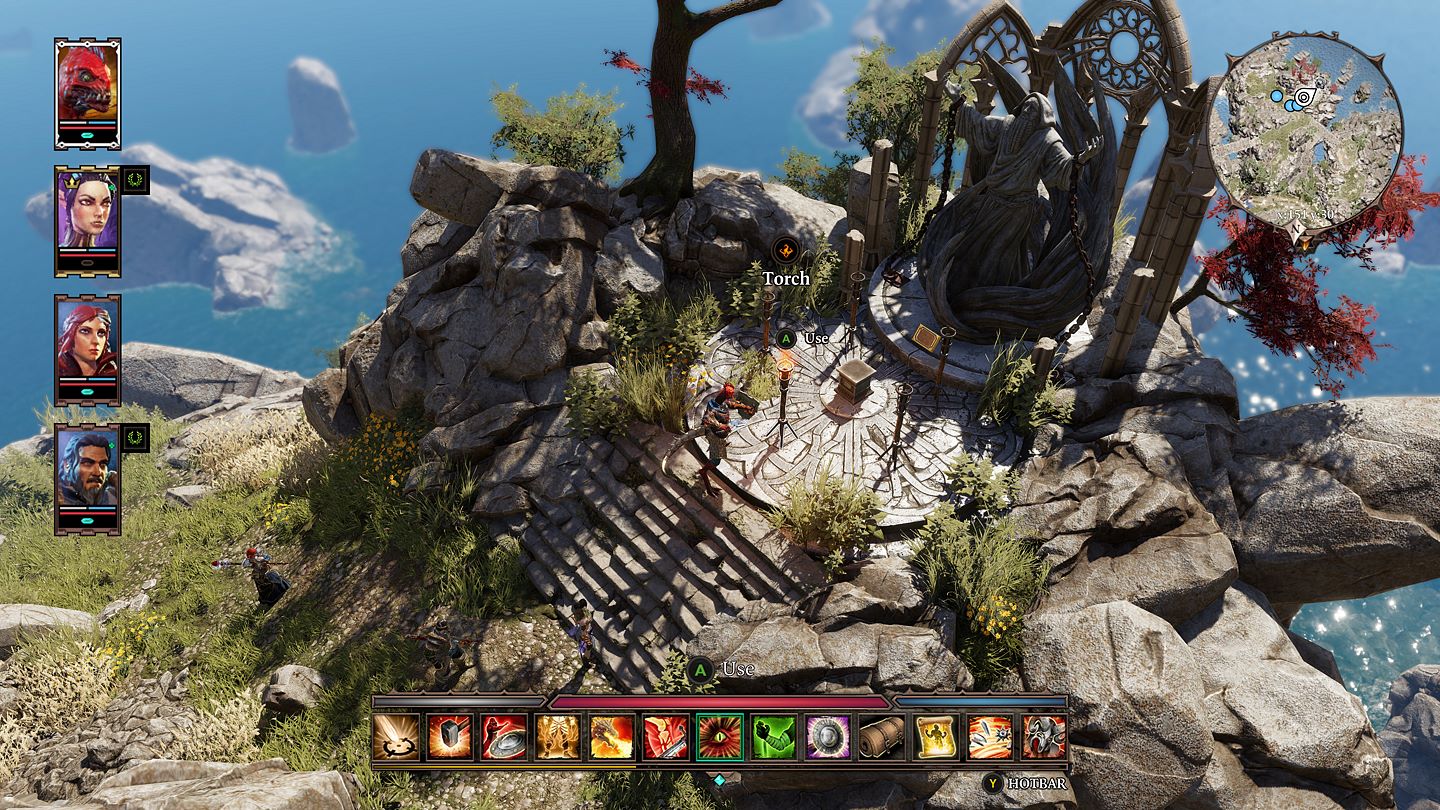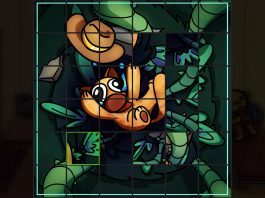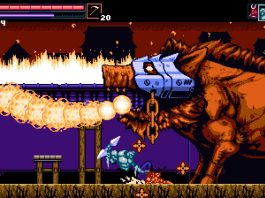When Divinity: Original Sin rocked up on the PC, critics lauded it as one of the best RPGs in years, especially with all the bells and whistles of the Enhanced version taken into consideration. Despite the success, developers Larian Studios didn’t rest upon their laurels and pushed on to bring a sequel to fruition, with a Kickstarter campaign making it a reality. After spending time in Xbox Game Preview, Divinity: Original Sin 2 was unleashed to the masses in its Definitive Edition form on Xbox One, but can it top the first outing? Could it really be the pinnacle of the RPG genre?
Anyone with half an interest in the RPG world will struggle to denounce this as being right up there amongst the greatest gaming experiences, and it’s not just because of the action, the storytelling or the immense depth. It’s all of that rolled into one and so much more. In fact, maybe – just maybe – Divinity: Original Sin 2 presents such a mammoth offering that it’s going to be too overwhelming for some.

The story goes that in the land of Rivellon, the all-mighty and powerful Divine is dead, whose job in life is to keep the creatures of the Void at bay. These horrible beasts known as the Voidwoken are drawn to the magical ‘Source’ powers and as such, the ‘Sourcerers’ using them are seen to be threats to this world too. The Divine Order seem to believe that draining the Source and persecuting the Sourcerers will help matters, but what they don’t realise is that they’ve imprisoned the next potential Divine, ‘The Godwoken’. And that’s where you come in…
There’s a lot of lore to take in for someone unfamiliar with the world, but however daunting you find it, embracing every bit of the narrative is the best way to go about it. Sure, the story goes off on a tangent quite frequently, delving into the seemingly menial lives of some NPCs, allowing you to explore their struggles and needs, but that serves the purpose of fleshing out the universe you are in. It won’t take long until you’re absolutely enthralled in the tales and wanting to learn more about the woman with a missing child or a Lord whose soul has been trapped for many years – the temptation to skip much of the dialogue to swiftly begin a quest is soon quashed.
Before any of that though, you need a character to call your own. As is recommended, choosing one of the six preset ‘Origin’ offerings ensures the best possible experience. Especially given that they have a proper back-story to tell and additional opportunities arise as a result. Anyone wishing to forge a fresh legacy with a customised character can do so instead and there are more than enough options in relation to race and classes to mix and match – you can have a fighter Lizard, a cleric Elf, a metamorph Undead etc.

Deciding upon the combat and civil abilities your character possesses is a difficulty task, mainly due to the sheer amount of different abilities present. It really depends on your playstyle as to whether Leadership is a priority to aid in dodging or if placing the points into a skill like Geomancer to increase Poison and Earth damage is more important. Choosing the civil skills is a tad easier because there are less to pick from, with abilities including Bartering to get better deals on items and Thievery improving lock-picking chances. A minor complaint in the creation process in is the slightly limited choice for appearances, but it matters little for those putting all their eggs in the baskets of a preset character, like I did.
Once in command of the mercenary Ifan ben-Mezd, I threw myself into the campaign and the initial tutorial stage. Whilst Divinity: Original Sin 2 provides plenty of pop-up text-based tips and hints, it’s incredibly gruelling to get to grips with the controls and top-down viewpoint. From the use of the hotbar, which soon becomes full of useful skills, potions and such to action on the fly, to the accessing of the many sub-menus that enables you mess around with equipment, keep on top of quests and organise the inventory, there’s just too much to take in. And I’ve barely scratched the surface on the controls either. The best way to grasp it all without spending upwards of an hour doing nothing productive except from breaking doors down and looting crates, is to power on through to the main crux of the game. It’ll click, eventually.
As soon as the controls become second nature, you then need to understand that there’s more to life in Rivellon than simply fighting. Talking to folk and negotiating a peaceful solution is as viable as putting a sword across someone’s neck. Certain dialogue choices, character skills and even specific characters under your guise can attain different outcomes, even extra quests. This is more noticeable once your party is bolstered by up to three additions, and with a Lizard, a Dwarf and an Undead in tow, some became more fearful whilst others seemed more at ease. You know how a lot of games brag that ‘Your decisions will matter”, well unlike most, this one lives up to it and it makes every situation a little more tense – in the best kind of way.

Progression comes from fulfilling a shed load of quests that’ll you’ll take up by chatting to the many NPCs throughout. The XP earned from completing these goes towards levelling up the characters, which leads to the acquisition of attribute, combat and civil points to distribute. Sometimes there are many different ways to further the main story or the side-narratives, with multiple solutions for quests at times. A prime example of this is when you need to free a prisoner by performing tasks on behalf of the guard watching over him. At first, I tried to locate stolen goods to absolve the falsely imprisoned chap, but a few stages into it, I just killed the guard, took the key and let the prisoner out myself. There’s nothing stopping such things occurring, except the potential consequences, which included nearby colleagues defending the guard and swarming my unsuspecting party.
In combat, it’s absolute chaos and I love it. Obviously as this is a turn-based affair, you must take turns performing actions, skills and spells, with a cost to your allocated Action Points. Being well positioned on the battlefield is as important as anything else and there are various environmental hazards to steer clear of. Barrels can be exploded, the ground is ignitable, acid could prevent a safe pathway to the enemy and so on, meaning you must focus on everything going on around you and adapt accordingly. Then you have to take into account enemy armour, weaknesses and pull off clever tactical manoeuvres to overcome the opposition.
Enemies are pretty darn smart too though, launching attacks that can completely tear up your plan by freezing an ally or teleporting one of your characters far enough away that they’re no threat for a couple of turns. The enjoyment comes in getting the best out of your party, using skills that go hand in hand and protecting the most powerful of the group at times to ensure maximum damage is dealt turn after turn. No battle ever feels the same and the varied selection of skills that you’ll gather over time help to make sure that it’s always exciting when a punch-up is called for.

The variation of enemies is rather good as well, with creepy crawly looking Voidwoken beasts to fend off, crocodiles, decomposing assassins and a whole raft of cunning Magisters doing the bidding of the Divine Order, the name just a few.
Exploring and searching rigorously within the many locations is a crucial aspect in finding secret areas, uncovering any previously hidden places on the map and acquiring necessary quest items. There will be many weapons, armour and amulets to find and equip, whilst plenty of lore and other nuggets of story can be taken in via the numerous books scattered around. Some of the books even contain crafting recipes for potions and food, with others offering the potential to learn new skills if your character is capable to. Honestly, it’s a pleasure to search every nook and cranny because there’s always something that you don’t expect, be it a cool item or a deadly beast.
I feel it’s worth mentioning another absolute pleasure to be found in Divinity: Original Sin 2 and that’s the sounds, or more poignantly, the voiceovers. Throughout the game, you’ll end up coming face to face with a lot of text-based dialogue, which would be a nightmare if it wasn’t for the addition of voice acting. Every character is brought to life by some terrific voice-work and it’s delightful to listen to.
Sadly, the visuals aren’t anything spectacular, which is a shame, but the lands are so vast that the standard is decent enough to convey the settings suitably. Whether you’re delving into the dark and dingy caves, wading through swamp-like areas or sneaking about in the depths of a bloody torture room, the environments never let you down in terms of setting the scene. Occasionally the characters aren’t distinguishable enough from each other during combat, but everything else aesthetically does the job as intended. Just don’t zoom in the camera too much, as that’s when things tend to go a bit awry.

What is quite noticeable though is the massive slow-down when a lot is happening on-screen – usually during powerful spells in combat – and it’s worrying because it makes you feel like the game is going to freeze up completely. And that’s on an Xbox One X, so god help the poor souls on the less powerful Xbox One consoles.
There are only a few features left to touch upon and the main one is the fact that the campaign is playable in co-op for two-players via split-screen locally and up to four players online. It’s great to have the option to share such a humongous game with friends and family, no matter how near or far away they are. I must mention the PVP Arena too, enabling offline battles to occur and online skirmishes for up to four people to get involved in Deathmatch and Kill the King game modes; the latter of which requires players to keep their VIP alive to win. Unfortunately the chance of getting an online Arena match has gotten slimmer and slimmer since release, so don’t expect much from that now.
Divinity: Original Sin 2 Definitive Edition is a truly superb RPG experience that delivers a complex but intriguing narrative, some of the most exciting and intelligent turn-based combat I’ve ever encountered, and a shed load of quests to ensure there’s always something to do. There’s a great emphasis on problem solving without conflict for those able to talk their way out of potential danger, whilst puzzling moments will also arise during quests to put your brain to the test. Greater still, you can enjoy it in co-op. The catch is that you’re possibly going to be overwhelmed at having to mentally process everything that’s happening, the learning of the controls and finding the right difficulty option for you.
Nevertheless, you shouldn’t miss out on such a wonderfully encapsulating game that’ll draw you in for hours and hours!







